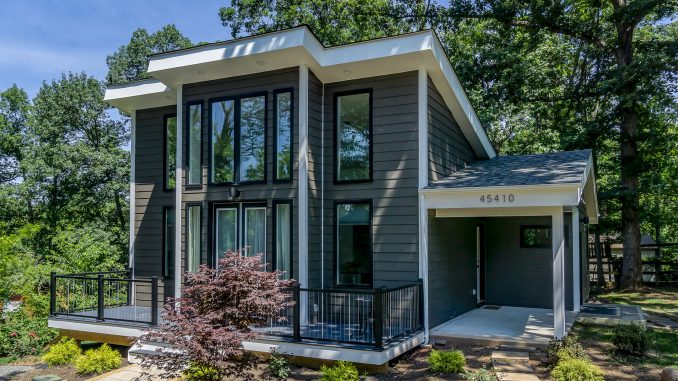
Gross Lease vs Net Lease: What's The Key Difference?

One of the most essential things when leasing industrial realty is knowing the lease terms that use to both the property managers and the occupants. Two primary lease categories, Gross Lease vs Net Lease, are different, i.e., gross lease and net lease, each with its own set of implications and responsibilities.

A gross lease, also called a full-service lease, implies that the occupant is obliged to pay a concurred lease quantity, and the property owner is accountable for self-paying all costs for the residential or commercial property, consisting of taxes, insurance, and upkeep.
However, another type of lease, a net lease frequently utilized in Commercial Real Estate-shifts expenses from the landlord to the occupant. The renter bears residential or commercial property taxes, insurance coverage, and general upkeep expenses.

Understanding the intricacy of gross and net leases is crucial for accomplishing an advantage and avoiding exception obligations related to leases. In this blog site, we will have a detailed take a look at the significance of gross lease and net lease and the distinction in between the 2.
A gross lease is a plan in which the renter pays just the agreeable fixed rent to the property owner, and the proprietor takes duty for all property-related expenses. These are all occupational costs, such as residential or commercial property taxes, insurance, and upkeep.
Tenants prefer a customized gross lease for its simpleness and transparency. Their regular monthly rental amount covers all their overhead costs, such as taxes and insurance coverage. This enables residential or commercial property owners to manage the monetary end of things. As such, it is an outstanding choice for folks who would prefer a straightforward lease procedure where they are not stressed over ever-changing expenses.
What Is A Net Lease?
A net lease is a commercial realty arrangement in which the lessor, the tenant, takes a specific residential or commercial property burden on top of the agreed-upon lease after a lease is given. This arrangement involves numerous expenses, such as residential or commercial property taxes, insurance, and maintenance.
Depending on the type, lease nets might be single, double, or triple web, frequently rearranging financial obligations between Landlord and Tenant to a varying extent. A net lease is both profitable and transparent, with the final rent of such leases interacted. Still, it is worthwhile to be cautious if one requires to check the terms properly. This lease principle is found a lot in business locations, hence making it appear as an alternative strategy to execute costs flexibly.
The Difference Between Gross Lease And Net Lease
For the cases of business property leases, browsing in between the gross lease and net lease is highly vital not just for property owners but likewise for tenants. These lease structures associate the responsibility of monetary obligation to different celebrations and predetermine the agreement's structure worrying the contract's intricacy and cost. We will check out the primary variations between a gross lease and a net lease here with the view of helping property owners and renters to get correct info.
1. Distribution of Costs
A considerable distinction in between a gross lease and any other type is that the proprietor bears all property-related costs. Total costs include taxes, insurance coverage premiums, maintenance expenses, and utilities, to name a few operations expenses. On the other hand, a net lease assigns running expenses between the property manager and the renter, and the regards to the signed contract set this allowance. In a single-tenant arrangement, the renter's responsibility covers residential or commercial property taxes, however in a double-net lease, the tenant will also cover its insurance coverage expenses. Among the main types of industrial realty leasing is the triple net lease, which refers to the occupant's obligation to pay residential or commercial property taxes, insurance charges, and maintenance bills.
2. Flexibility and Customization
A gross lease is an exceptional concept for tenants as it will assist keep them economically predictable. In these contracts, the occupants are supposed to check out the contract and understand the conditions only. There is no negotiating about sharing costs associated with the residential or commercial property due to the fact that the property manager takes charge and bears all the charges. On the other hand, a net lease is one in which the tenant gets higher freedom to monitor- and handle property-related costs. Therefore, this level of particularization empowers the lessees to be in authority over maintenance, insurance coverage companies, and taxes. On the one hand, the versatility provides occupants more control, but on the other, the hands-on work is doubled due to the fact that the occupant has to watch on these additional costs and is needed to administer the spending plan personally.
3. Risk and Responsibility
Leases structured as gross have the property manager subjecting the financial threat to see to the operating expenditures. This configuration offers relaxation to the renter on the part of electrical power costs, upkeep, operational and repair work expenses, etc. Renters and flooring owners, nevertheless, have equally a function in appreciating each other's interests and changing their expectations when it comes to market changes. However, a Tenant in net lease arrangements has financial risks depending on the complex types of net leases. Concerning occupants, they feel the impact of increasing residential or commercial property taxes and insurance premiums, together with an escalation in maintenance costs.
4. Common Use Cases
The gross lease plan is commonly applied to workplace leases, specific retail locations, and some industrial structures. when the property owner seeks to provide a thorough service to tenants by guaranteeing the site is ready to use. The most interesting feature of this contract structure is that it is perfect for tenants who choose something other than lease structures that resemble complexities and unforeseeable expenses. Contrarily, industrial realty typically supplies net leases, especially for long-term contracts with significant retail renters such as big fast-food chains, pharmacy stores, and square-shaped trading areas. Net lease, in specific, is highly ideal for the renter to have more control over property-related expenditures and a constant income for the financiers.
Explore Various Gross Lease and Net Lease Residential Or Commercial Property In The United States
Gross and net leases are the most more suitable kinds of lease that a tenant searches for. Both use little and big enterprises easy, affordable, and comfortable leasing opportunities. But in this fast-growing world, finding a residential or commercial property for lease is very difficult according to one's needs and preferences.
Today, innovation has made discovering a residential or commercial property for Lease in the US simple. You can visit Citadel Residential or commercial property Management Crop, a US-based genuine estate management company providing renters leasing, leasing, and housing chances. Here, you can browse for residential or commercial properties on gross or net leases per your preferences.
1. Which is more beneficial, gross lease or net lease?
For a renter, a gross lease is more beneficial. On the contrary, a net lease is more advantageous for a property manager.

2. What is the advantage of gross lease?
The benefit of a gross lease is that it alleviates the financial concern. Shifting maintenance charges and other fees to the property manager alleviates the burden on the tenant.









